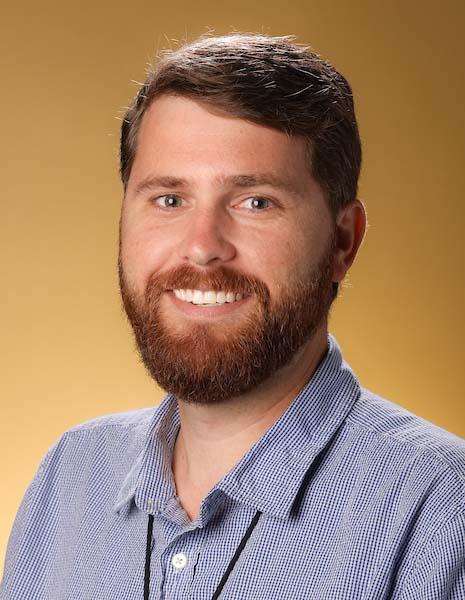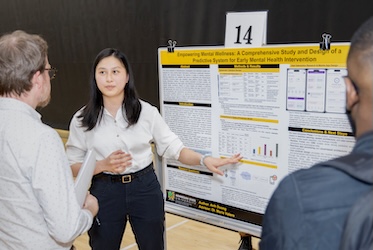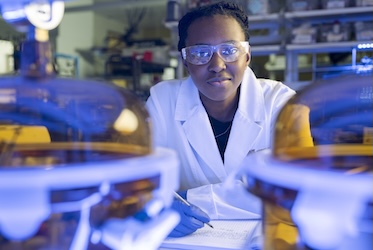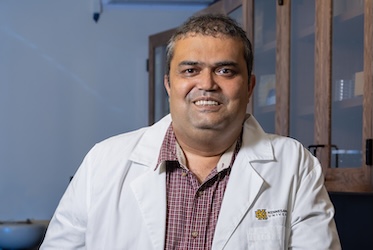
Kennesaw State launches Office of Intellectual Property Development
KENNESAW, Ga. | Jun 9, 2021

For all that researchers do well – from identifying problems to generating world-altering solutions – they often struggle to see their research reach its full potential by placing it in the hands of consumers said Chris Cornelison, who serves as the director of KSU’s Office of Intellectual Property Development.
The office, launched as a unit within the Office of Research, acts as a one-stop shop for university researchers looking to advance their discoveries. In his role, Cornelison is responsible for guiding inventors through the process of filing disclosures and connecting with attorneys, as well as linking with potential industry partners for the licensing of property and discovery of market opportunities.
While many functions have existed informally over the years, formalizing it into an official part of the university’s infrastructure signals a renewed commitment to realizing its goal of becoming the premier Carnegie-designated R2 research institution, said Phaedra Corso, vice president for research.
“We have an incredibly rich research culture that spans a myriad of disciplines and industries,” she said. “When a discovery has the potential to positively impact society, it is incumbent upon us to do everything we can to advance it. By launching the Office of Intellectual Property Development, we are empowering our inventors to take the next step and realize their potential.
The office addresses commercialization questions and concerns by funneling faculty and students to the appropriate resources. Through the Kennesaw State University Research and Service Foundation (KSURSF), the entity responsible for protecting and managing intellectual property on behalf of KSU, inventors are provided all the financial and legal means.
More resources arrive with the Innovation Launch Pad, a workshop modeled after the National Science Foundation Innovation Corps program to provide training and guidance to KSU researchers on lean start-up methodology and customer discovery in an effort to advance their scholarly products to consumer markets.
“All of this combines to make KSU a very favorable place to be for inventors,” Cornelison said. “If there is an ability to commercialize an idea, our inventors have the potential to realize revenue, and our structure allows for a bigger share of that revenue than any other institution in Georgia.”
Still in its infancy, Cornelison said there won’t be any single unit of measurement to demonstrate the overall impact of an ever-expanding intellectual property portfolio. However, in the future he expects to see significant growth in the number of disclosures filed, start-up companies spawned from university research and licensing deals secured, among many other metrics.
“Ultimately, we strive to achieve our mission to be the liaison into the corporate world by connecting our academic talent to industry sponsors who have real-world problems that need solving,” he said. “At Kennesaw State, we have the talent pool to solve them.”
– Travis Highfield
Related Stories

Passions spark innovation at Kennesaw State Symposium of Student Scholars

Kennesaw State students to present research at Symposium of Student Scholars

Chemistry student engaged in sustainable catalyst research through Kennesaw State's First-Year Scholars program

Kennesaw State researchers awarded Department of Energy grant to investigate materials that boost energy-efficient technologies
A leader in innovative teaching and learning, Kennesaw State University offers undergraduate, graduate, and doctoral degrees to its more than 47,000 students. Kennesaw State is a member of the University System of Georgia with 11 academic colleges. The university’s vibrant campus culture, diverse population, strong global ties, and entrepreneurial spirit draw students from throughout the country and the world. Kennesaw State is a Carnegie-designated doctoral research institution (R2), placing it among an elite group of only 8 percent of U.S. colleges and universities with an R1 or R2 status. For more information, visit kennesaw.edu.















